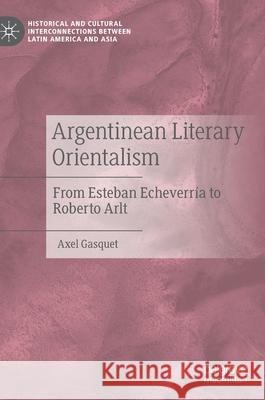Argentinean Literary Orientalism: From Esteban Echeverría to Roberto Arlt » książka
topmenu
Argentinean Literary Orientalism: From Esteban Echeverría to Roberto Arlt
ISBN-13: 9783030544652 / Angielski / Twarda / 2020 / 304 str.
Argentinean Literary Orientalism: From Esteban Echeverría to Roberto Arlt
ISBN-13: 9783030544652 / Angielski / Twarda / 2020 / 304 str.
cena 403,47
(netto: 384,26 VAT: 5%)
Najniższa cena z 30 dni: 385,52
(netto: 384,26 VAT: 5%)
Najniższa cena z 30 dni: 385,52
Termin realizacji zamówienia:
ok. 22 dni roboczych.
ok. 22 dni roboczych.
Darmowa dostawa!
Kategorie:
Kategorie BISAC:
Wydawca:
Palgrave MacMillan
Seria wydawnicza:
Język:
Angielski
ISBN-13:
9783030544652
Rok wydania:
2020
Wydanie:
2020
Numer serii:
001127411
Ilość stron:
304
Waga:
0.53 kg
Wymiary:
21.01 x 14.81 x 1.91
Oprawa:
Twarda
Wolumenów:
01
Dodatkowe informacje:
Wydanie ilustrowane











